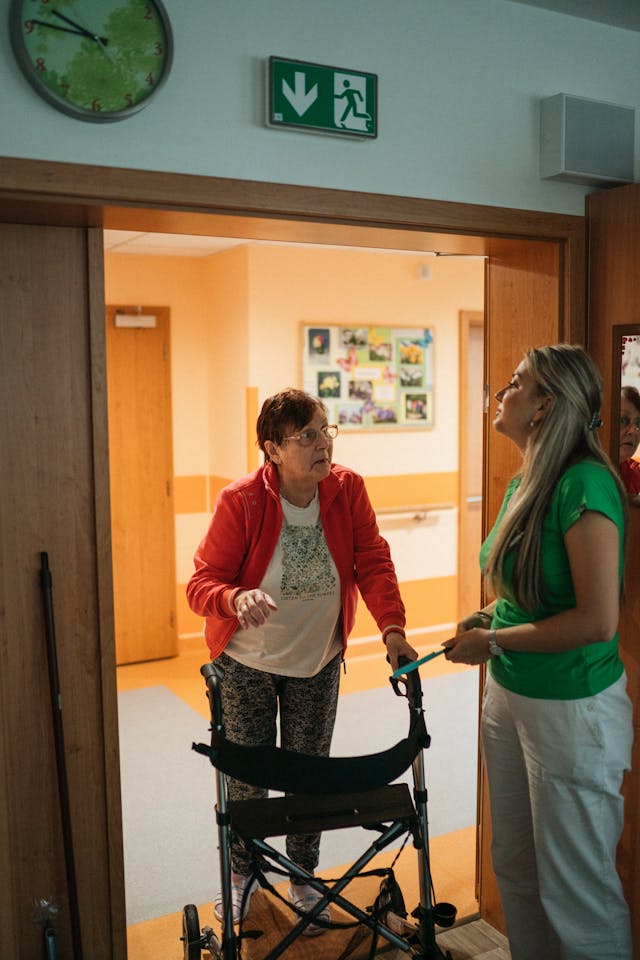
Introduction:
Residential caregivers hold a unique and vital role in society, providing essential support and care for individuals in need. Whether it’s assisting the elderly, individuals with disabilities, or those with chronic illnesses, caregivers play a crucial part in enhancing their quality of life. However, the nature of their job is not without its challenges. From the physical demands to the emotional toll, caregivers often find themselves neglecting their own well-being in the process. In this comprehensive exploration, we delve into the intricate daily experiences, multifaceted challenges, and the indispensable importance of self-care for residential caregivers.
Insights into the Life of a Residential Caregiver:
The daily life of a residential caregiver is characterized by a myriad of responsibilities and tasks, each requiring a delicate balance of compassion, patience, and skill. From assisting with personal hygiene and medication management to preparing meals and providing companionship, caregivers are the cornerstone of support for their clients. They form deep emotional connections with those under their care, often becoming like family members, sharing joys, sorrows, and life’s moments both big and small. Despite the challenges inherent in their profession, caregivers find immense fulfillment in the relationships they build and the positive impact they make on the lives of their clients.
Challenges Faced by Residential Caregivers:
While the rewards of caregiving are plentiful, so too are the challenges. One of the most prominent challenges is the physical demands of the job. Caregivers often find themselves lifting and transferring clients, assisting with mobility, and performing tasks that require physical strength and endurance. These activities can take a toll on the caregiver’s body, leading to injuries and chronic pain if proper precautions are not taken.
However, it’s the emotional toll of caregiving that often proves to be the most taxing. Providing care for individuals with complex needs, such as dementia or severe disabilities, requires immense emotional resilience. Caregivers must navigate through moments of frustration, sadness, and even anger, all while maintaining professionalism and empathy. Witnessing the decline of their clients’ health or cognitive abilities can be heartbreaking, and caregivers may find themselves grappling with feelings of helplessness or grief.
Moreover, the demanding nature of the job, including long hours and irregular schedules, can disrupt caregivers’ own lives and routines. Balancing work commitments with personal responsibilities, such as caring for their own families or pursuing hobbies and interests, becomes a constant juggling act. The lack of consistency in their schedules can also contribute to feelings of stress and fatigue, further exacerbating the challenges they face.

Importance of Self-Care for Residential Caregivers:
In the midst of their dedication to caring for others, caregivers often neglect their own well-being. However, prioritizing self-care is not just important; it’s essential for their ability to continue providing quality care. Neglecting self-care can lead to burnout, compassion fatigue, and ultimately, compromised health and job satisfaction.
Recognizing the importance of self-care involves acknowledging one’s own needs and limitations. Caregivers must carve out time for rest, relaxation, and rejuvenation amidst their busy schedules. This may involve seeking support from colleagues, supervisors, or support groups to share experiences, seek advice, and find solace in knowing they’re not alone in their struggles.
Furthermore, incorporating self-care practices into their daily routines is paramount. This can include engaging in physical exercise to promote strength and endurance, practicing mindfulness or meditation to reduce stress and promote emotional well-being, and prioritizing hobbies and activities that bring joy and fulfillment. Additionally, maintaining a healthy work-life balance by setting boundaries and scheduling regular time off is crucial for preventing burnout and maintaining long-term sustainability in the caregiving profession.
Strategies for Maintaining a Healthy Work-Life Balance:
Maintaining a healthy work-life balance is essential for caregivers to thrive both personally and professionally. Setting boundaries is key to preventing work-related stress from spilling over into their personal lives. This may involve establishing clear guidelines for when they are available to work, as well as setting aside dedicated time for rest and relaxation.
Seeking support from colleagues, supervisors, and support groups can provide caregivers with valuable resources and guidance. Connecting with others who understand the unique challenges of caregiving can offer a sense of camaraderie and validation, while also providing practical tips and strategies for managing stress and preventing burnout.
Additionally, caregivers should prioritize self-care activities that promote physical, emotional, and mental well-being. This may include regular exercise, practicing mindfulness or meditation, engaging in hobbies and interests, and seeking professional counseling or therapy when needed.
Conclusion:
In conclusion, the role of residential caregivers is indispensable in our society, providing essential support and care for individuals in need. However, the challenges they face, both physical and emotional, can take a significant toll on their well-being if not addressed proactively. By recognizing the importance of self-care and implementing strategies to maintain a healthy work-life balance, caregivers can sustain their passion for their profession while ensuring their own health and happiness. Let us endeavor to support and empower caregivers in their vital work, valuing their dedication and commitment to enhancing the lives of those they care for.
Frequently ask questions (Faqs)
What do you think are the challenges about being a caregiver?
Being a caregiver comes with various challenges, including physical demands such as lifting and assisting with mobility, as well as emotional challenges like witnessing the decline of clients’ health or cognitive abilities. Additionally, irregular schedules and long hours can disrupt caregivers’ personal lives and lead to feelings of stress and fatigue.
What is a typical day in the life of a caregiver?
A typical day for a caregiver involves a range of tasks, including assisting with personal care activities, medication management, meal preparation, and providing companionship to clients. Caregivers also handle various administrative tasks and may accompany clients to appointments or outings.
How do you handle difficult situations related to caregiving?
Handling difficult situations in caregiving requires a combination of patience, empathy, and problem-solving skills. Caregivers often rely on their training and experience to navigate challenging circumstances, seeking support from colleagues or supervisors when needed.
How do you manage your challenges in caregiving?
Managing challenges in caregiving involves prioritizing self-care, setting boundaries, and seeking support from others. Caregivers may engage in activities that promote physical and emotional well-being, establish clear guidelines for their workload, and connect with colleagues or support groups to share experiences and seek advice.
You may also like
- https://mychartspace.com/digital-charting-for-caregivers/
- https://mychartspace.com/caregiver-burnout/
- https://mychartspace.com/health-and-safety-in-residential-care-homes/
- https://mychartspace.com/how-to-involve-care-home-residents-in-local-events/


